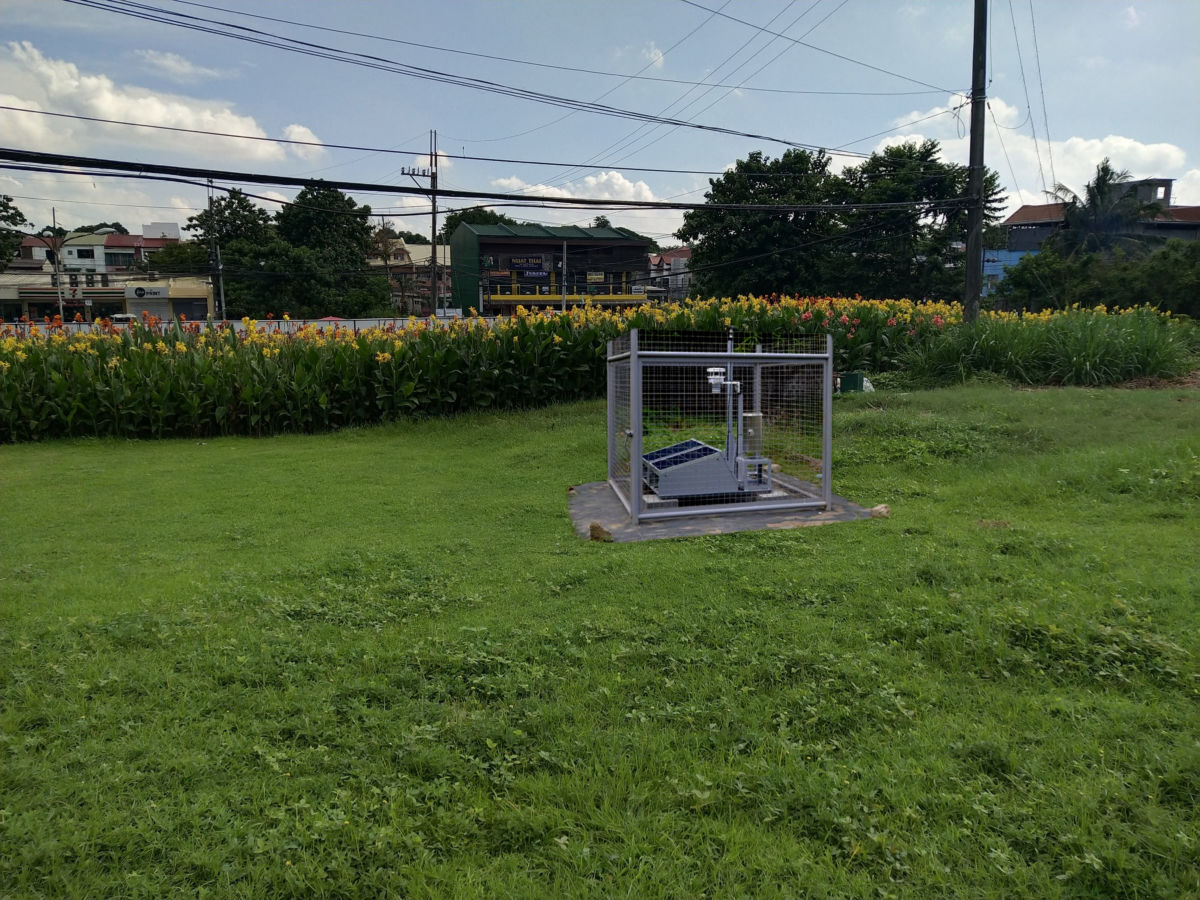Far Eastern University (FEU) is proud to announce that it has signed a Memorandum of Agreement with the Department of Science and Technology Advanced Science and Technology Institute (DOST-ASTI) for the installation of the P-POTEKA Weather Station as part of the Science and Technology Research Partnership for Sustainable Development (SATREPS) Understanding Lightning and Thunderstorm (ULAT) project.
After a thorough survey of FEU’s Diliman campus, researchers from DOST-ASTI agreed that the front lawn near the football pitch of the university meets all the requirements that ensures the smooth installation and operation of P-POTEKA. The site is suitable for the P-POTEKA weather station’s 3G communications. DOST-ASTI also concluded that the front lawn is free from any large sources of electrostatic noise that can severely impact the station’s reliability.

Additionally, FEU Diliman’s location at the heart of Metro Manila ideally presents an opportunity for the ULAT Metro Manila Weather Network to better predict storms and typhoons in the stations’ effective coverage.
In turn, the partnership with DOST-ASTI will allow FEU Diliman to improve its science programs. The university will be able to invite DOST representatives to the campus to educate faculty members about the equipment’s function and importance. FEU Diliman teachers will then be able to disseminate the information to their learners, especially FEU Diliman Senior High School’s STEM students. The university can also use the P-POTEKA device for academic purposes.
The MOA has been finalized since October, with DOST-ASTI signing the agreement on October 6, 2020 and FEU Diliman on October 23. However, the deployment of manpower for the project has been delayed due to challenges brought on by the COVID-19 pandemic. The installation of the weather station will push through once all issues are resolved.
The P-POTEKA Weather Station is an autonomously-powered system that allows for closer to real-time and location-specific weather forecasts. It measures several weather parameters: solar radiation, rain, wind speed and direction, air pressure, humidity, and temperate. Unlike current nationwide systems that monitor weather at a macroscale or regional level, the ULAT Metro Manila Weather Network can observe weather conditions at a microscale level (specific to cities or barangays) and forecast both the location and intensity of storms. Through this system, the government can speed up its response time for impending weather anomalies.
The ULAT project is a collaborative research agreement between DOST-ASTI, Japan International Cooperation Agency (JICA), Japan Science and Technology (JST), and Hokkaido University.
According to DOST-ASTI, the project aims to observe the Philippines’ weather behaviors by studying torrential rainfall and thunderstorm occurrences as parameters to eventually enable short-term forecasts. Parties involved in the project aim to build a network of 60 lightning instruments throughout the country to collect torrential rainfall data and lightning events in an effort to improve weather forecasts and generally speed up disaster response.
Additionally, the project supports FEU Diliman’s environment and social responsibility. With the development of accurate weather forecasts, FEU Diliman will be able to contribute to the government’s rapid response to natural calamities and initiatives to save lives. The university’s participation not only only helps improve the development and implementation of science projects in the country, but also cultivates nation building among Filipinos as well.
The Philippines can only be as strong as everyone dreams it to be if they are also driven to work together to make it a better place for the next generation. As the country continues to experience typhoons and other natural calamities that only become stronger as years pass, it is now a crucial time for the government and academe to work together and resolve these life-and-death matters. With FEU Diliman’s support, the ULAT project will take flight and help the Philippine government make more efficient and effective action plans for the good of Filipinos nationwide.
